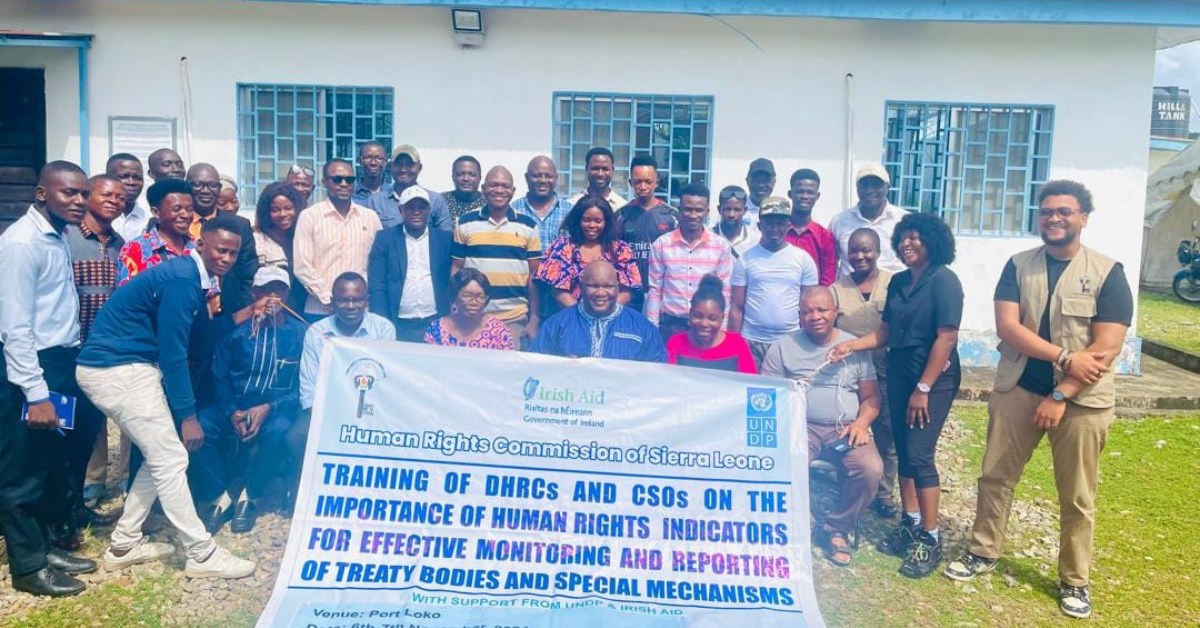The Human Rights Commission of Sierra Leone (HRCSL) conducted a two-day training on November 6-7, 2024, in Port Loko aimed at strengthening the capacity of 35 civil society leaders and members of District Human Rights Committees (DHRCs) from the North West region.
The training, held at the NDMA Hall with support from the United Nations Development Programme (UNDP) and Irish Aid, focused on the use of human rights indicators to enhance effective monitoring and reporting on treaty body recommendations and special mechanisms.
This session in Port Loko follows similar initiatives conducted recently in Makeni and Waterloo for the North and Western regions, marking a sustained effort by HRCSL to expand human rights monitoring expertise nationwide. Through the training, participants received in-depth instruction on tracking and reporting the implementation of international human rights standards within Sierra Leone, equipping them to better monitor compliance with treaty bodies and special mechanisms.
Participants expressed strong commitment to applying their newly gained skills. Civil society activist Papa Bangura highlighted the impact of the training on their advocacy work, describing it as “an eye-opener in monitoring human rights issues.” He emphasized that the knowledge shared by HRCSL would enable them to serve as proactive agents for human rights within their communities, effectively using human rights indicators to uphold standards.
Commissioner Hassan Samba Yarjah praised the participants for their dedication and underscored the vital role of DHRCs and CSOs in the human rights landscape of Sierra Leone. He thanked UNDP and Irish Aid for their ongoing support, adding, “It is not a mistake that we decided to train you on this very important topic. It is part of our functions to always collaborate with you.”
The HRCSL’s training initiative aligns with international standards for human rights monitoring and reporting, advancing the Commission’s mission to protect and promote human rights throughout Sierra Leone.











